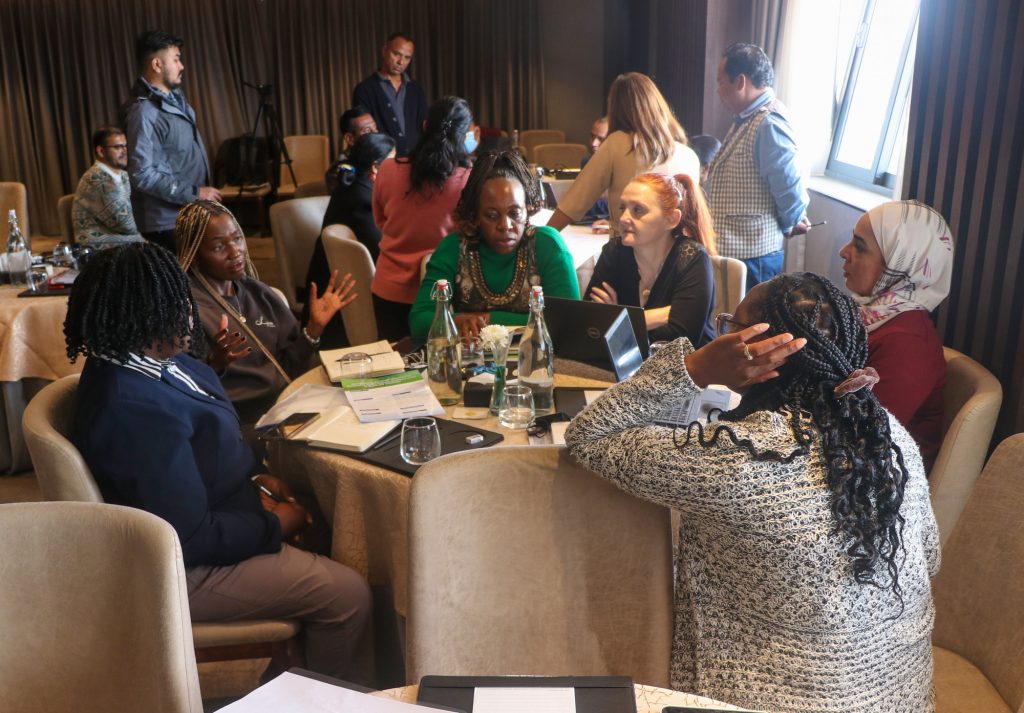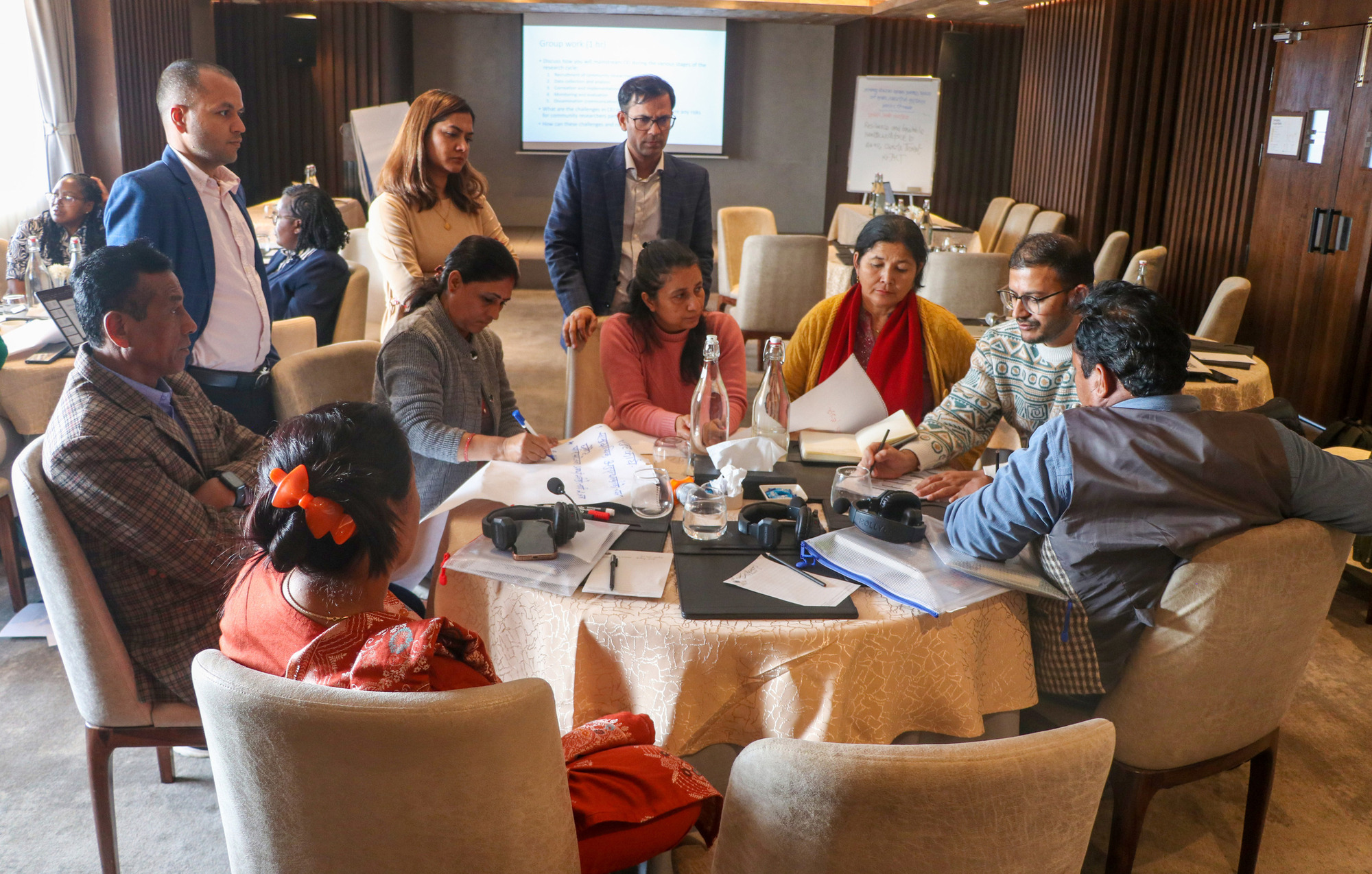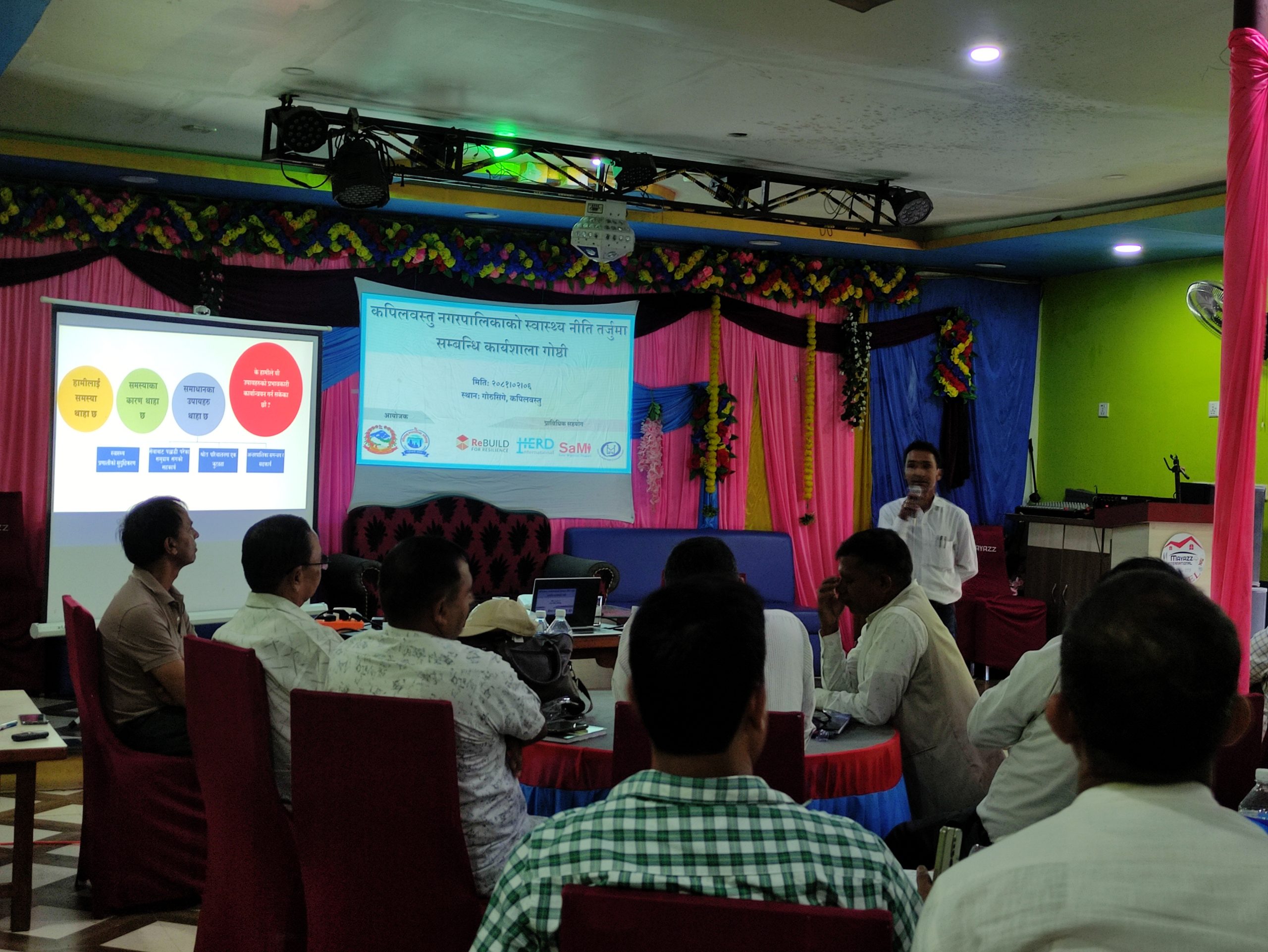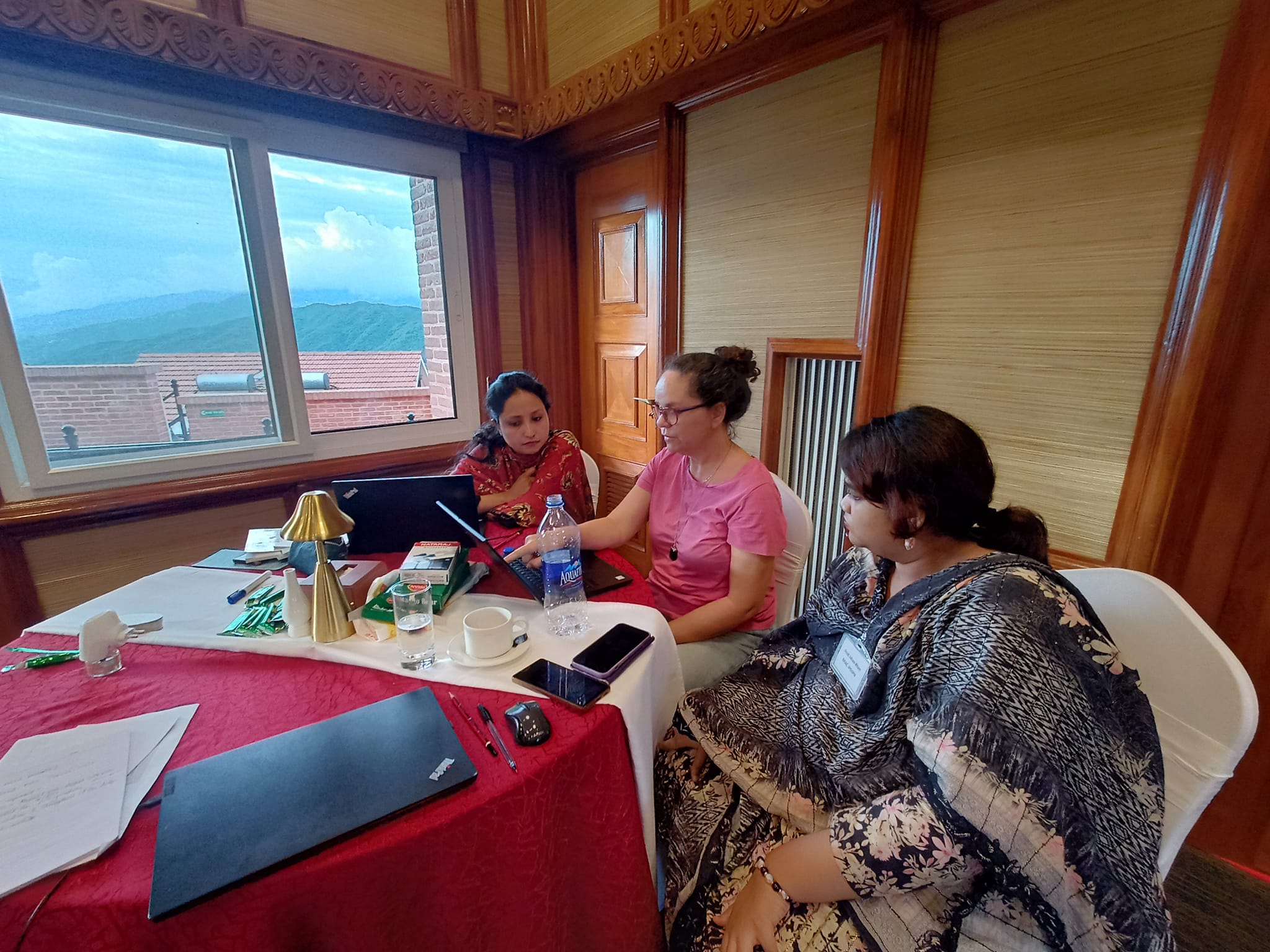Climate change is rapidly becoming a global crisis. Heatwaves, droughts, floods, and landslides are causing significant changes to the patterns of communicable and non-communicable diseases. This is an intersectional issue affecting many sectors, including health and health outcomes, at global, regional, national, and sub-national levels. The health workforce, which comprises service providers, community volunteers, and decision-makers, has a critical role to play in the emerging landscape of health affected by the climate crisis.
To help strengthen the capacity of the health workforce in responding to the health impacts of climate change, the Resilient and Equitable Health Workforce to Address Climate Threats (REACT) consortium planned a four-year study in Nepal and Zimbabwe. The REACT project aims to strengthen partnerships and co-create context-specific and gender-equitable research and intervention protocols with relevant stakeholders to assess and improve the preparedness and capacity of health systems to respond to the impacts of the climate crisis. This pilot intervention will involve routine evaluation of equity, feasibility, effectiveness, sustainability, and scalability. Finally, the REACT project consortium will also encourage the uptake of learning and evidence among health stakeholders in Nepal and Zimbabwe to strengthen the resilience of the health system to climate change-related shocks.
REACT partners—the Liverpool School of Tropical Medicine (LSTM), UK; HERD International, Nepal; and the Centre for Sexual Health, HIV, and AIDS Research (CeSHHAR), Zimbabwe—along with representatives from the project implementation sites, assembled in Kathmandu on February 10–14, 2025, to launch the study funded by the National Institute for Health and Care Research (NIHR). The study will focus its research and subsequent interventions in Ghorahi Sub-Metropolitan City and Chandannath Municipality in Nepal, and Mount Darwin District and Harare Local Authority in Zimbabwe.
During the workshop, participants planned major activities, approaches, and modalities of the research and agreed on the timelines for activity completion. Stakeholders from Ghorahi and Chandannath expressed their hope that the research and interventions under the REACT project would support filling capacity gaps in the health sector and improve overall health outcomes for their constituents. They also encouraged the consortium use learnings from Ghorahi and Chandannath as models for the potential scaling up of the project in all 753 municipalities of Nepal.

Participants engaged in group work during the workshop (Photo credit: Ranjit Satar, HERD International)










